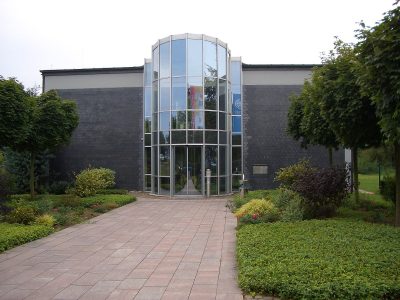
By Katie Ascough - 11 July, 2020

Steyler Bank, Germany
In an interview with Vatican News, Fr Paul Daisuke Narui SVD, an economist and the Bishop-elect of Nigata in Japan, reflected on how the Church must help ensure post-Covid-19 economic recovery is based on ethical investments that protect the poor and the environment from exploitation and neglect. He noted that Catholic economists are warning against investments that may appear fruitful, but that are based on unethical practices and exploitation.
Fr Narui is an economist, known for his work in peace, justice and the integrity of creation as well as for his advocacy on behalf of migrants. Since 2018 he has been part of the Council on Ethics, an advisory body for Steyler Bank in Germany, also known as the SVD Bank, which is the only bank founded by and belonging to a religious congregation in the Catholic Church.
In an interview with Vatican Radio’s Gudrun Sailer, Father Narui explained how his role as an expert in ethical investment fits in with the vow of poverty he has taken as a religious: “I believe the vow of poverty has some perspectives in religious life and mission. Basically, it is to offer and share everything for God. To do so, we join the poverty of Jesus, who made himself poor and loved the poor. We follow this example, therefore our investment, or even when receiving donations, we must consider that money and goods need to be used in solidarity with the poor. If we help the poor, and at the same time we destroy the environment and the lives of poor people through investment, or if we receive donations from companies that destroy the environment, our work becomes meaningless.”
Ms Sailer pointed out that Pope Francis voiced a similar idea in his encyclical Laudato Si and asked Fr Narui what must an investment take into account in order to be ethical.
“There are two ways to make an investment ethical,” Fr Narui replied. “The first way is the prevention of injustice, human rights violation and environmental destruction through investment. To do this, we avoid investing in unethical business such as environmental degradation, abortion, embryonic research, the military industry, or the way some companies work, such as labour rights violation. The second way is to promote ethical business, the products and the services which provide environmental benefits and care for people, like renewable energy, equal employment opportunity, contribution for the local community, corporate social responsibility, etc. So it is important to check the portfolio of the investment products to see whether the investments really go to ethical businesses or not.”
Ms Sailer raised the issue of the coronavirus pandemic and how the world is concerned about economic recovery after the collapse it has caused. “Some say that the situation must be restored as quickly as possible in order to avoid more poverty,” Ms Sailer said. “Others say that this is the chance to start a new form of economics. What criteria should be used as a guide from a Catholic perspective?”
“As Pope Francis says,” Fr Narui continued, “the poor, the most vulnerable people should not be left behind. There are so many people who have lost their jobs and many of them, like migrants, have no access to social security. The local Church should be attentive to such people and should collaborate with the local government offices to make social security available to all. Human rights must be respected in such a time.”
The full interview with Fr Paul Daisuke Narui SVD can be found here.